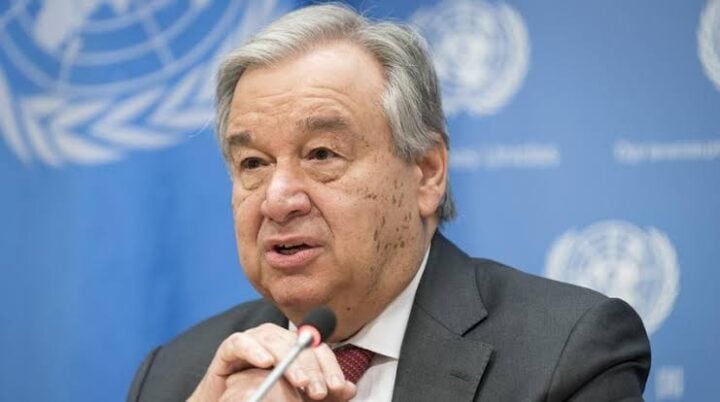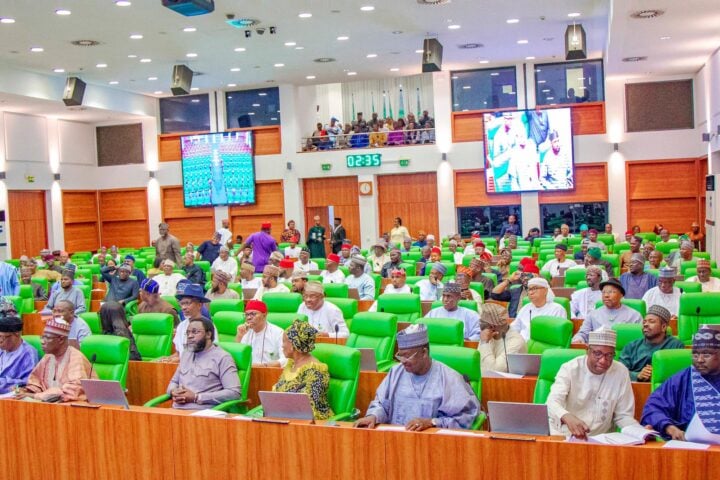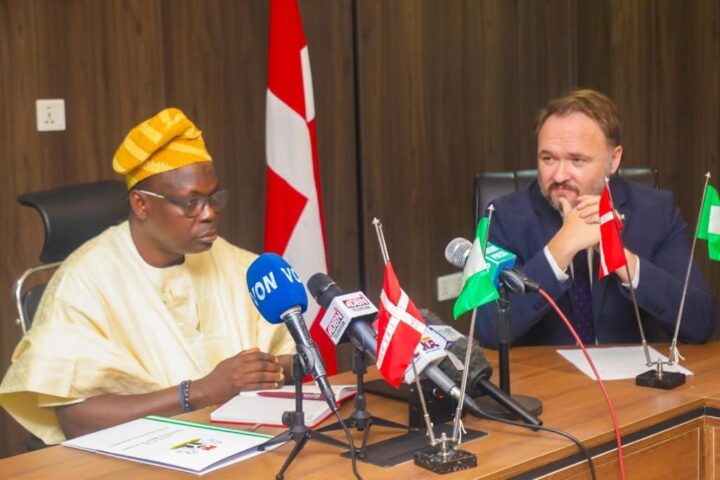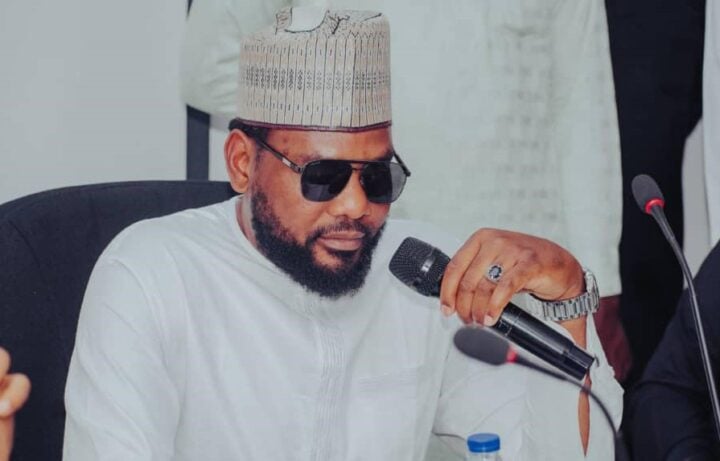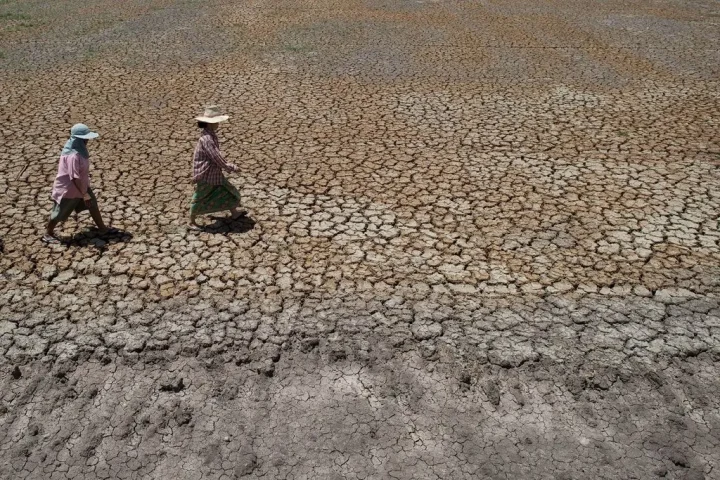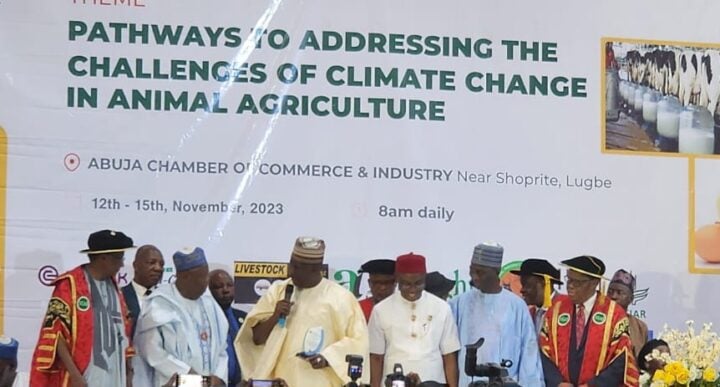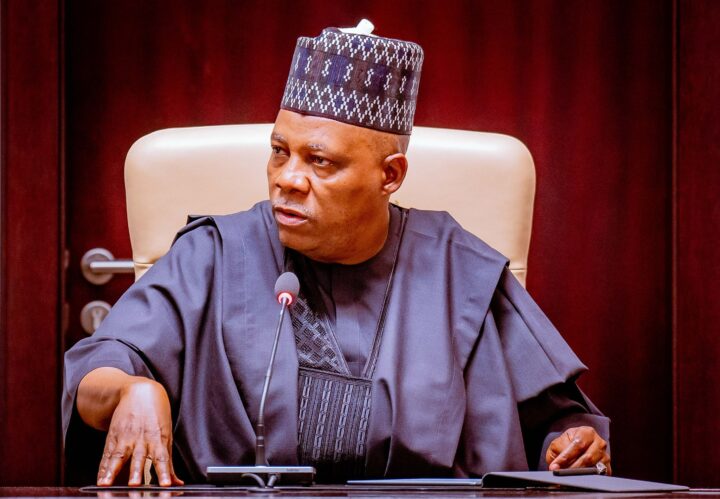Antonio Guterres
Despite directly impacting our communities, health, and livelihood, climate-related reports usually take a back seat to dominant news beats like politics and business. Climate Watch aims to ensure you never miss important stories on climate change and actions being taken toward limiting its impacts.
Here is a round-up of last week’s climate stories:
- Agora Policy, an Abuja-based think tank, on November 6, said Nigeria needs to embrace opportunities offered by the green economy and pursue a low-carbon and climate-compatible development pathway. The organisation said Nigeria is at risk of becoming one of the countries most affected by climate change, unless “urgent and bold actions” are taken. According to Agora Policy, as of 2020, Nigeria lost at least $100 billion annually to climate change effects. Read more here.
- Agora Policy also announced that it would hold a policy conversation bordering on Nigeria’s climate change and green economy. The organisation said the conversation would serve as a platform for policy-facing dissection of the risks and opportunities that climate change, energy transition and the green economy present to Nigeria. The conversation is scheduled to be held on November 22. Find out more here.
- At a two-day training on bio-risk management in Abuja on November 6, Ishaq Salako, minister of state for environment, said Nigeria would explore the latest advancements in bio-risk management to enhance safety in the environment. Salako said the training on bio-risk management would offer the stakeholders the opportunity to gain insights to safeguard the environment. He added that the training was necessitated by the challenges posed by emerging diseases, bioterrorism threats, and the potential consequences of accidental laboratory releases. Read more here.
- Last week, South Korea announced the lifting of the ban on single-use paper cups due to the country’s economic conditions. Lim Sang-jun, the country’s vice-minister of environment, said the government decided to exclude paper cups from disposable items, as other countries mainly restricted the use of single-use plastic cups. Sang-jun said the ministry has withdrawn the regulation prohibiting the use of disposable paper cups in food service businesses. He said the decision took into consideration, the position of small business owners who face the burdens of “high prices and interest rates”. Read more here.
- The house of representatives committee on renewable energy, on November 8, said Nigeria needs to be “intentional” in investing in the renewable energy sector. Afam Ogene, chairman of the committee, said while the country is blessed with natural resources, the government can implement initiatives to protect citizens from their harmful impacts. Ogene said natural resources have been abused such that they have become harmful and destructive to the environment. The legislator said renewable energy is the future, noting that Nigeria and all stakeholders must step up and be “more intentional in investing in the renewable energy sector and technologies”. Read more here.
- A group of activists from Ogoni land known as the Peoples Advancement Centre, on November 8, asked the federal government to stop any new oil exploration in the Niger Delta region. AkpoBari Celestine, leader of the group, said the government needs to concentrate on cleaning up the region, adding that “you cannot run the tap and mop your floor at the same time”. He said President Bola Tinubu should consider a full implementation of the United Nations Environment Programme (UNEP) report on the Ogoni cleanup. Find out more here.
- A report by the UN Environment Programme (UNEP) last week, said governments plan to produce more than double the amount of fossil fuels by 2030. The report said the production would exceed amounts needed to limit global warming to 1.5° Celsius. According to the report, government plans and projections would lead to an increase in global coal production until 2030, and global oil and gas production until at least 2050. It called on governments to aim for a near-total phase-out of coal production and use by 2040. Antonio Guterres, the UN secretary general, said climate catastrophe cannot be addressed without tackling fossil fuel dependence. Guterres said fossil fuels are “sending essential climate goals up in smoke”, adding that it is “time for change”. Find out more here.
- Balarabe Lawal, the minister of environment, on November 9, said the federal government would start a new community development in Ogoniland that would involve traditional institutions and other stakeholders in the cleanup exercise. Lawal said it has been eight years that the cleanup of Ogoniland has been ongoing and expressed optimism that the environmental challenges faced in the Niger Delta community would soon be resolved. He said there are plans to curb desert encroachment with the help of the National Great Green Wall Agency. Read more here.
- Olasupo Olusi, managing director of the Bank of Industry (BoI), on November 9, said the financial institution raised over $5 billion in the last five years to build a climate-smart Nigeria. Olusi said the BoI would leverage its extensive partnership to raise the resources required for tackling climate change in the country. He said part of the bank’s strategies is to accelerate Nigeria’s development through supporting environmentally friendly and sustainable projects across the key sectors of the economy. Find out more here.
- The Arab Coordination Group (ACG), on November 10, promised to donate $50 billion for the building of climate-resilient infrastructure and inclusive societies in Africa. Muhammad Al Jasser, the president of the Islamic Development Bank (IsDB), said the ACG is committed to working with African countries to address development challenges that are being exacerbated by climate change. He said the fund would support initiatives in energy security and transition, enhance support for fragile states, private-sector financing, food security, poverty and unemployment. Find out more here.
- Vice-President Kashim Shettima, on November 10, set up an ad hoc committee to harmonise Nigeria’s agenda at the upcoming 28th conference of parties (COP28) in the United Arab Emirates (UAE). Shettima said there is a need for urgent preparations to present a strong position at the conference. He said it is important for the committee to come up with strategies that would enable Nigeria to benefit from the conference. Read more here.
Add a comment
